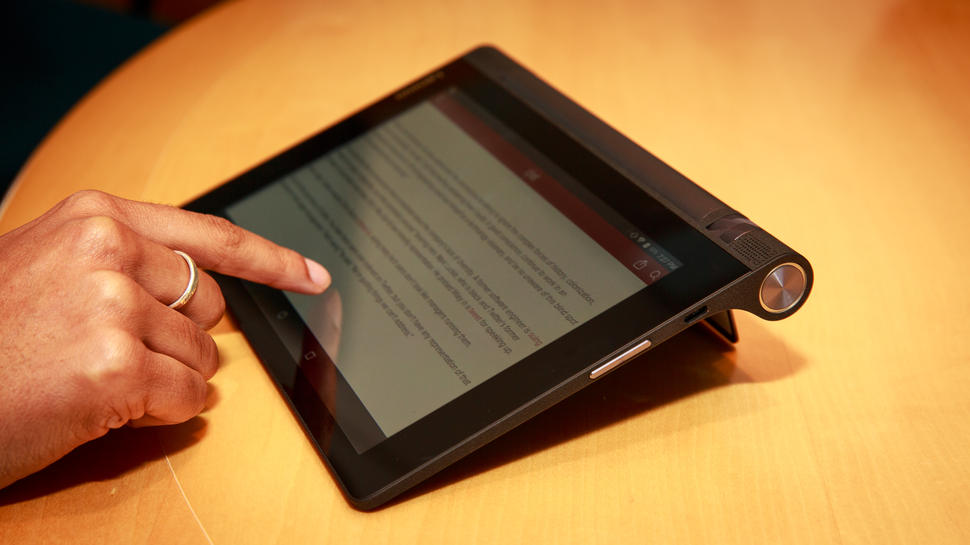Reading from the Tablet and laptop may change our thinking process

We are now living in a digital era, where everything possible is on the internet. Even reading is digital. If you are so much into reading from your computer screen or kindle, the new study is giving you a reason to not to get used to it. Here is one more reason to stick with the old school method.
The research which is linking our brain with technology
According to a new study, using latest technologies for reading may change the way we think. Reading on the digital platform makes us more likely to concentrate on solid details than interpreting information more abstractly.
Researchers said that these new findings should be considered as an alarming call to how digital media may be affecting our possibility of using abstract thought.
Researchers from the Dartmouth College, United States attempted to test the basic question – would managing the same information on a digital versus non-digital platform can have an impact on “construal levels”. This is the basic level of concreteness versus abstractness that people use to interpret behaviors, events, and other information.
Tablet or paperback?

For the study purpose, researchers tried to grasp as many factors as possible persistent between the digital and non-digital platforms, to examine the basic question of whether processing the same information on one platform or the other would set off a different baseline “interpretive lens” or mindset that would dominate construal of information.
Reading the material and another content for the study was published using the exact print size and format in the digital and also in non-digital (print) versions. The research was combined with four studies that analyzed how information processing is affected by each platform.
The carried out with more than 300 participants between the ages of twenty to twenty-four years. Participants were asked to read. The reading material was provided in either a physical printout (non-digital) or in a PDF on a PC laptop (digital). Later they were asked to take a pop-quiz, a comprehension test by using paper and pencil.
For the abstract questions participants using the non-digital platform scored higher than those who used the digital platform. The participants who used non-digital platform had given sixty-six percent correct answers and the participants who used digital platform given forty-eight percent correct answers, researchers noted.
On the concrete questions, researchers observed the opposite results. Participants who used digital platform scored better than non-digital users. Digital platform users scored 73 percent correct answers and non-digital platform users have given 58 percent correct answers.
Later participants were given material to read. They were asked to read an information table about four, fake Japanese car models on either a PC laptop screen or paper print-out, and were then asked to choose which car model is better.
Sixty-six percent participants who used the non-digital platform (printed materials) has given the right answer, said, researchers. They added that only forty-three percent participants who used digital platform have given right answers.

The researchers observed that setting off a more abstract mindset prior to an information processing task on a digital platform seemed to help ease a better performance on tasks that need abstract thinking.
Geoff Kaufman from Dartmouth College said, “Given that psychologists have shown that construal levels can vastly impact outcomes such as self-esteem and goal pursuit, it is crucial to recognize the role that digitization of information might be having on this important aspect of cognition.”
